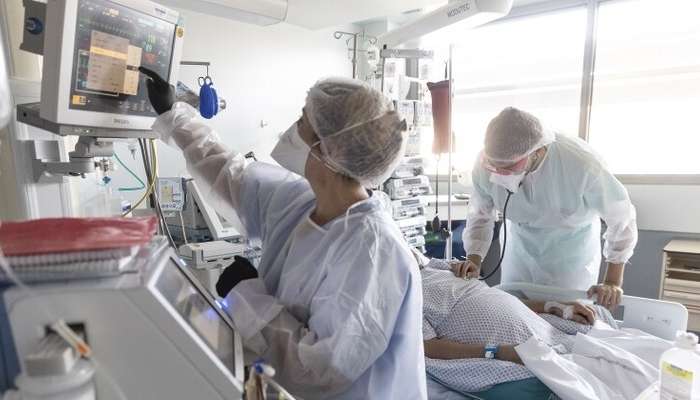
Los Angeles: Emerging evidence suggests that catching the coronavirus a second time can heighten long-term health risks, the DPA news reported.
Earlier in the pandemic, it was assumed that getting infected afforded some degree of lasting protection, for perhaps a few months.
As the coronavirus mutates, though, that’s no longer a given. And each individual infection carries the risk not only for acute illness but the potential to develop long COVID.
“The additive risk is really not trivial, not insignificant. It’s really substantial,” said Dr. Ziyad Al Aly, clinical epidemiologist at Washington University in St. Louis and chief of research and development at the Veterans Affairs Saint Louis Healthcare System.
According to a preprint study examining U.S. veterans, of which Al Aly was the lead author, getting infected twice or more “contributes to additional risks of all-cause mortality, hospitalization and adverse health outcomes” in various organ systems, and can additionally worsen risk for diabetes, fatigue and mental health disorders.
“Reinfection absolutely adds risk,” Al Aly said. The study suggested that, compared with those infected only once, individuals who caught the coronavirus a second time were at 2½ times greater risk of developing heart or lung disease and blood clotting issues. Subsequent infections also were associated with a higher risk of potentially serious health problems, as well as death from COVID-19.
It’s possible that a repeat coronavirus infection will leave someone just fine, which is what happens to most people, Al Aly said. “But you might be one of the unlucky ones and … get some really serious health problem with an infection.”
“I think having some preexisting immunity — whether it’s natural or from a vaccine — appears to reduce your risk of long COVID, but it’s still there. It’s not zero,” said Dr. Steven Deeks, a professor of medicine at UC San Francisco and principal investigator of the Long-term Impact of Infection with Novel Coronavirus.
A separate report suggested that even adults who had received a booster dose still have to consider the risk of long COVID. A British report said that, during the initial omicron wave, about 1 in every 25 triple-vaccinated adults self-reported having long COVID three to four months after their first infection.
Still, some clinicians say that long COVID sufferers tend to be either unvaccinated or missing their boosters.
The best way to prevent long COVID is to not get COVID-19. Many officials and experts cite non-pharmaceutical interventions such as masking as key tools, since vaccinations reduce, but do not entirely eliminate, the risk.